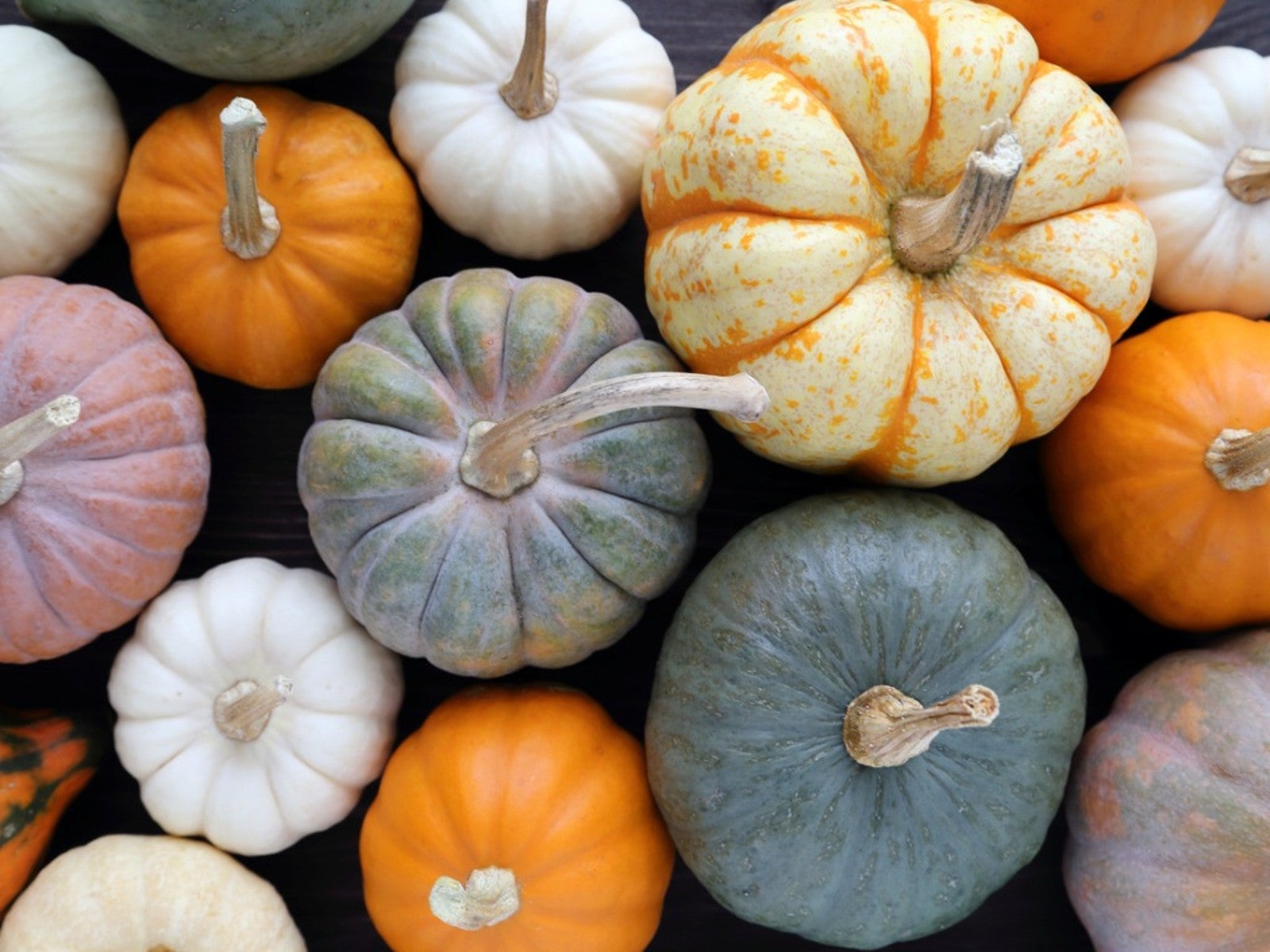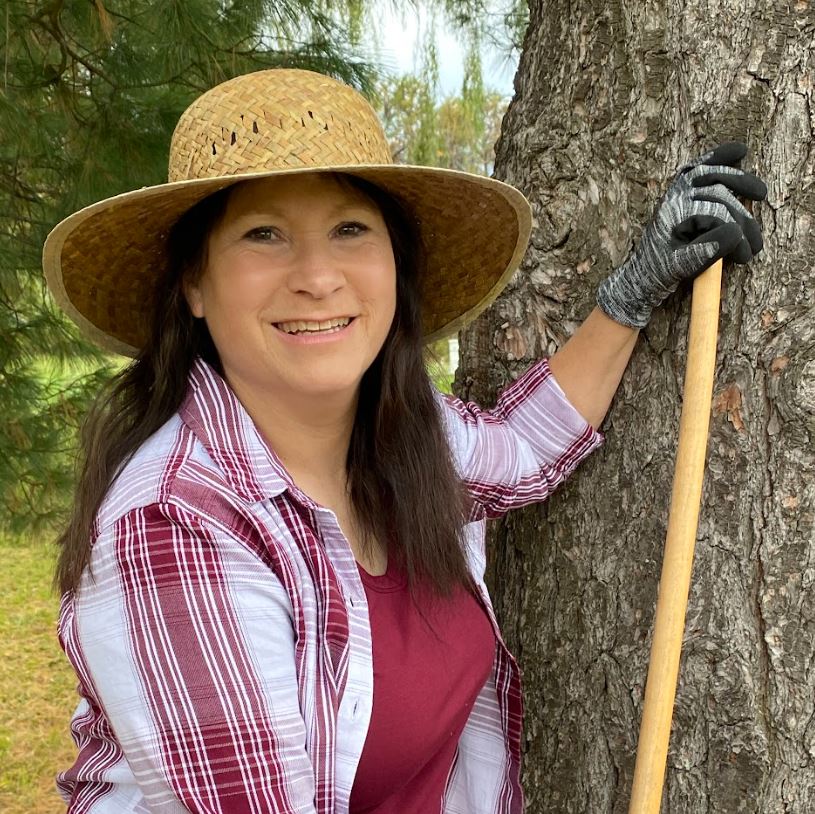10 Most Unique Pumpkins - Unusual Types Of Pumpkins To Try


Sign up for the Gardening Know How newsletter today and receive a free copy of our e-book "How to Grow Delicious Tomatoes".
You are now subscribed
Your newsletter sign-up was successful
Autumn is pumpkin season. Whether you use this traditional fall crop for decoration or as a culinary delight, one thing is for sure. It's time to break out of the classic orange pumpkin mold and try something new. Here's our list of the 10 most unusual types of pumpkins to grow and use.
The 10 Most Interesting Pumpkin Varieties
1. Black Futsu – Like a color-changing chameleon, this rare Japanese variety is one of the most unique pumpkins you can grow. Starting out as a greenish-black wart covered fruit, 'Black Futsu' turns chestnut color when mature, but not before transitioning through a grayish-green, moldy-looking stage. Unparalleled for its spookiness, the flesh of this variety has a sweet, buttery flavor.
2. Cushaw Pumpkin – The green and white striped skin, coupled with a crook-necked shape, makes 'Cushaw' a variety of unique pumpkins to grow at home. Although not well-suited for carving, this old fashioned favorite has a mild, sweet, orange flesh. Use it for pies, soups, and smoothies.
3. Dill's Atlantic Giant – The biggest of the big pumpkin varieties, 'Dill's Atlantic Giant' is a heavyweight contender in any “Largest Pumpkin” contest. This variety does best with ample sunlight, fertile soil, and plenty of room to grow. Other giant contenders include 'Prize Winner' and 'Big Max.'
4. Jack-Be-Little – One of many miniature pumpkin varieties, 'Jack-Be-Little' resembles a tiny replica of the classic orange pumpkin. At only 2 inches (5 cm.) tall, these adorable minis make wonderful table displays. For contrast and color, mix with other miniature varieties such as the white 'Baby Boo' or the orange and white striped 'Tiger.'
5. Jarrahdale – One of the more unusual types of pumpkins, this deeply ribbed, orange-fleshed variety has a greenish to grayish blue skin. “Jarrahdale” contrasts nicely in decorative porch settings with classic orange varieties, but don't overlook this long-keeper's exception flavor when it comes to pie making. Alternate blue varieties include 'Blue Moon' and 'Blue Doll.'
6. Lakota – Sporting a pear-shape, Lakota is one of the most unique pumpkins to grow. Named for the American Indians who cultivated it, this brightly-colored reddish-orange pumpkin has dark green highlights along its ribs and bottom. Sweet and creamy enough to eat fresh, Lakota has a nutty flavor.
Sign up for the Gardening Know How newsletter today and receive a free copy of our e-book "How to Grow Delicious Tomatoes".
7. Long Island Cheese – Looking like a wheel of pale yellow cheese, this heirloom variety from the 19th century is one of the more unusual types of pumpkins. Shaped like a flattened sphere with medium ribbing, “Long Island Cheese” has stringless flesh and a sweet, earthy flavor.
8. Lumina – The ghosty-white skin of these unusual Halloween pumpkins contrasts nicely with their bright orange interior. Use Lumina as a carving pumpkin, for painting and decorating or for eating. The fine-grain flesh has a mild, earthy flavor that's ideal for pumpkin soup. Additional white varieties include 'Casper' and 'Silver Moon'.
9. Porcelain Doll Pink Pumpkin – The peachy-pink colored skin isn't the only reason 'Porcelain Doll' is one of the most unique pumpkins on the market. A percentage of the proceeds from the sale of these pink pumpkins and seeds benefits breast cancer research and awareness. For the best color, allow “Porcelain Doll” to remain on the vine until fully ripe.
10. Warty Goblin – Named for the orange and green warts which arise in clusters from the bright orange skin, “Warty Goblin” is the quintessential holiday décor. Their sheer ugliness makes these unusual Halloween pumpkins ideal for carving spooky and spine-chilling Jack-o-lanterns. Adult supervision is recommended as the hard shell can be difficult to cut.

Laura Miller has been gardening all her life. Holding a degree in Biology, Nutrition, and Agriculture, Laura's area of expertise is vegetables, herbs, and all things edible. She lives in Ohio.